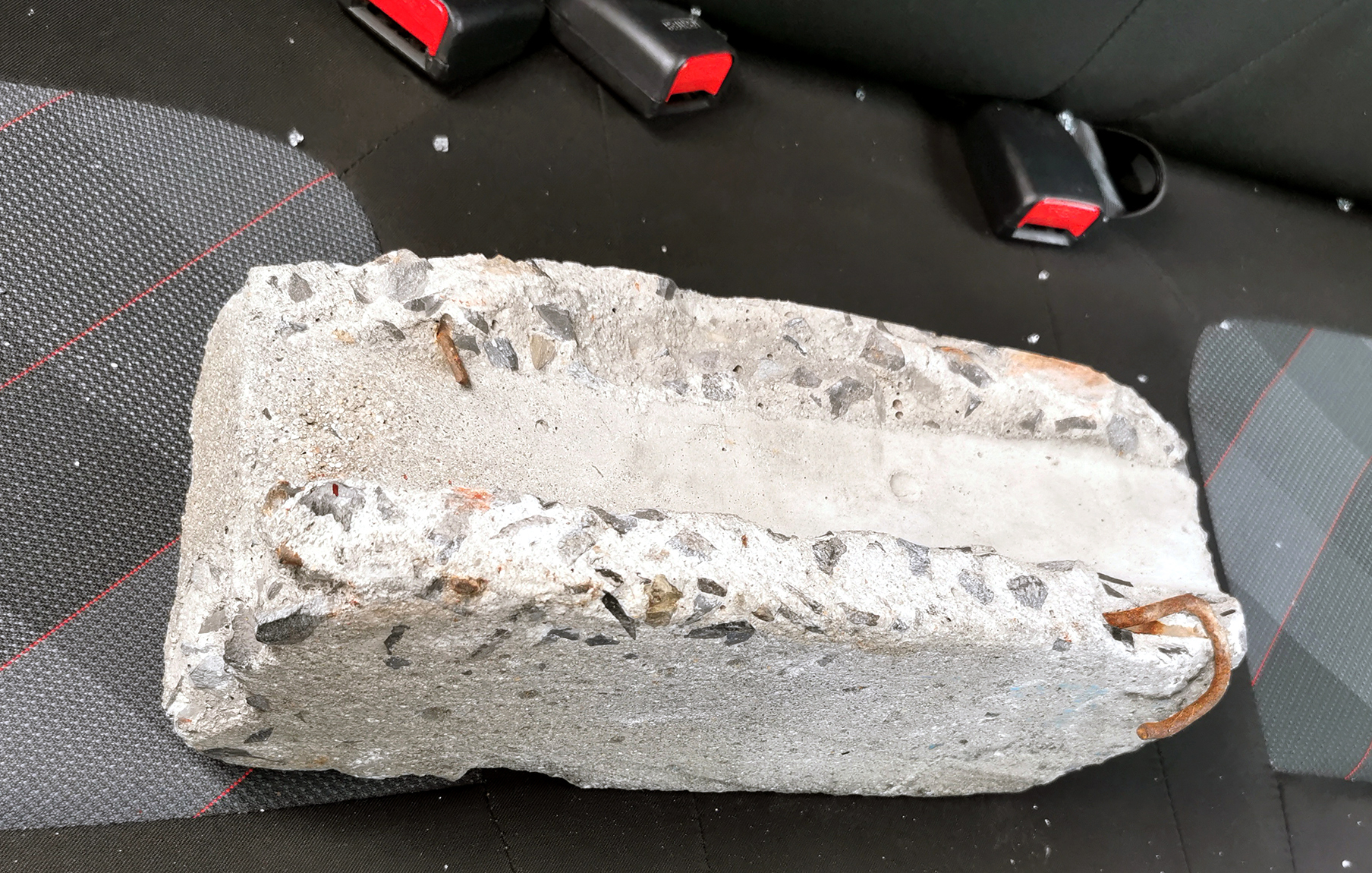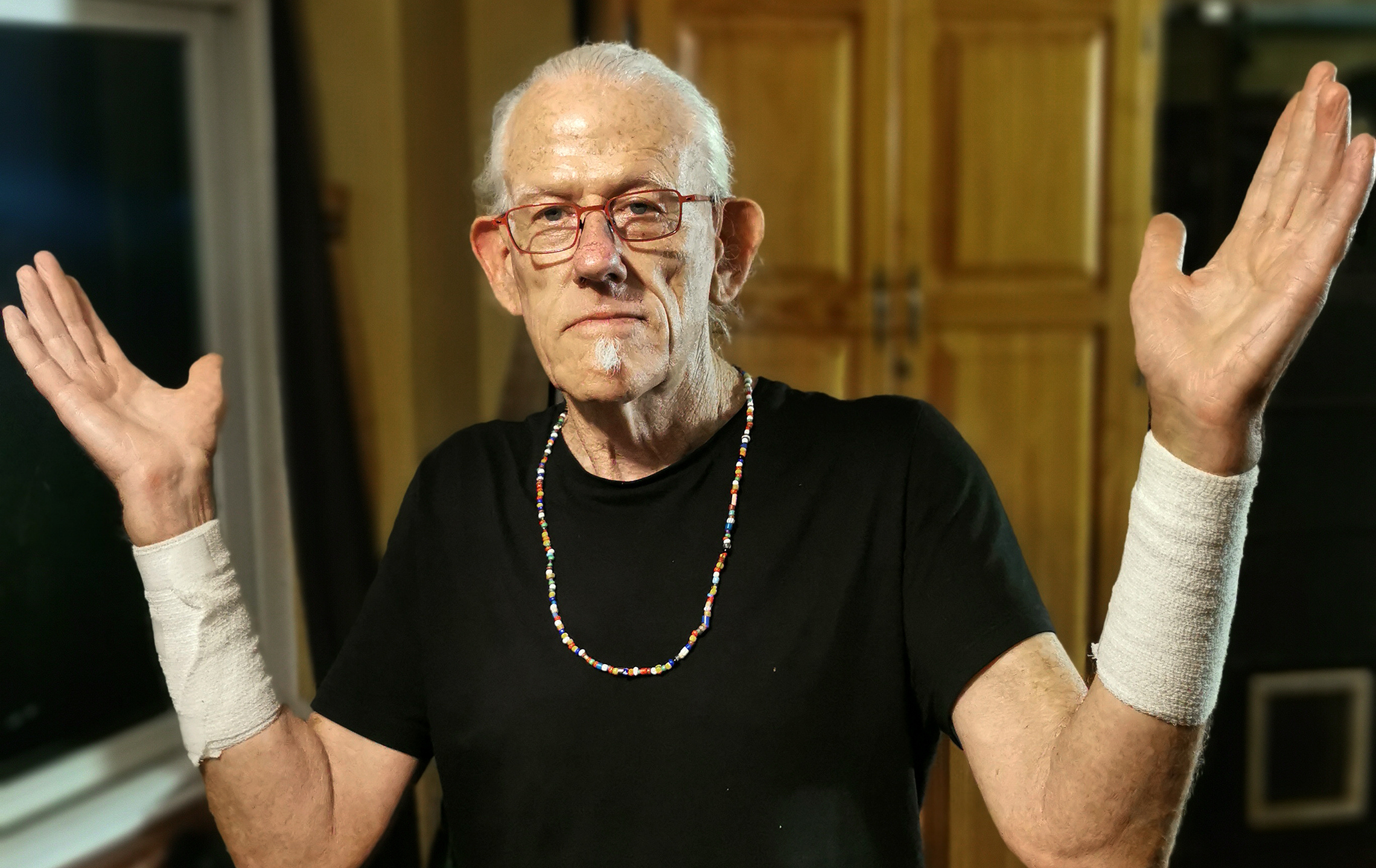On Monday, 13 November, Daily Maverick published an article entitled ‘Google Maps will no longer direct visitors through Cape Town township after attacks on motorists’. On the same day, I messaged Google urging them not to send motorists to Muizenberg through Nyanga because, unbeknown to Daily Maverick, the “most recent” attack wasn’t in October, but on 10 November. I know this because it happened to me.
I hired a car on arrival at Cape Town International Airport on Friday, 10 November, and Google Maps suggested a route that would take me to Baden Powell Drive which hugs the False Bay coast to Muizenberg. As someone from Jozi, I was looking forward to a drive along the sea.
What I didn’t know was that the “fastest route” would take me through Nyanga, rated in September 2023 as the 21st most dangerous place in the country and the 7th most dangerous in the Western Cape.
However, once I found myself in the area, I wasn’t particularly worried. I’m in and out of Alex, I lived in Yeoville, and I’ve run workshops in Diepsloot and Gugulethu. I’m pretty street-wise so I knew to be alert to my surroundings, but never expected any problems. I was mistaken.
While waiting at a traffic light, a 20kg chunk of concrete came smashing through the driver’s window. My ignition key was snatched and thrown into the street to stop me from driving off. I didn’t see the rock flying past my face or the key being removed. I didn’t even feel the rough concrete tearing across my scrawny arms. Recovering from my initial shock, I saw someone trying to get in through the gaping hole where the window had been.
 The 20kg chunk of concrete that burst through the driver’s window. (Photo: Supplied)
The 20kg chunk of concrete that burst through the driver’s window. (Photo: Supplied)
Strangely, I wasn’t scared. I attacked him, shoving him out of the car. As I did so, I saw a gash in my right arm and thought the guy had a knife and had stabbed me. But I saw no sign of a weapon in his hands. We tussled, him shouting, “Give me your cellphone” and me yelling, “Fuck you!”
Unexpectedly, he turned and ran off.
I then saw that both of my arms had suffered serious damage from the concrete block, which had come to land on the handbrake, mercifully missing my head.
Passersby urged me to get out of the area, but I couldn’t – not until someone found the car key and brought it to me. I am deeply indebted to that anonymous, caring member of the Nyanga community. Thank you. Ndiyabulela. You are a good person.
Read more in Daily Maverick: US couple attacked and robbed on the way to Cape Town airport after Google Maps directs them via high-risk route
I continued on my designated route, having decided it made more sense than turning around. Then I noticed people looking at me weirdly as they drove past. It was only when I looked in the rear view mirror that I realised that my face and neck were covered in blood from multiple cuts caused by the flying glass from the shattered window.
I stopped at a petrol station, cleaned up a bit with the help of several sympathetic people and continued to Muizenberg to the home of Karl von Holdt and Adele Kirsten where I dropped my bags and headed to a hospital to get treatment.
Adele drove me to the nearest Netcare facility – which wasn’t at all near, but I had to go there to satisfy my minimalist medical aid package – and I was given eight stitches in the right arm and a dressing on the left (I subsequently learnt that I may need a skin graft on that arm – I’ll know next week).
That done, I continued life pretty much as normal. On Saturday, I attended a farmworkers’ workshop and went ahead with a presentation on the history and socioeconomic impact of alcohol use – the purpose of my visit to Cape Town – and flew home on Sunday.
While in Cape Town, I discovered that I was not the first person to be directed along that route – and also that I had escaped relatively lightly. Other victims had lost all their possessions, some had suffered serious injuries, and others had been killed.
I was fortunate in so many ways – the concrete block missed my head, the would-be robber wasn’t armed, he acted alone, he left empty-handed, no one else took advantage of my exposed and vulnerable predicament once he had run off, the key to the car was found and returned to me, there were people who “saw me” – in isiZulu, the literal translation of the greeting “sawubona” (hello) is “I see you”, used to acknowledge the worth and dignity of each person one meets – and generously assisted me, and I reached Muizenberg safely without further problems.
Read more in Daily Maverick: Visitors warned to be alert on Cape Town’s N2 ‘Hell Run’
On Monday, after I had written to Google telling them my story and asking them to stop their maps app from recommending that particular route, Sheila Drew sent me the Daily Maverick article.
Later in the day, Khethiwe Marais sent me another piece in the Cape Argus on the same issue. Both were reporting on efforts by the Department of Tourism, the City of Cape Town and other stakeholders to persuade Google to stop sending people through Nyanga.
I hope, for the sake of future visitors to Cape Town, that Google takes these interventions seriously.
So I survived the ordeal, for which I am deeply grateful, acutely aware of how easily it could have ended so much more terribly.
But I am now grappling with an overwhelming and complex set of emotions – anger, frustration, despondency and profound sadness – at the fact that thanks to the current political and socioeconomic reality of our country, we are producing young people (he was in his late teens, early twenties) who think nothing of maiming or killing someone in pursuit of so trivial an item as a cellphone.
The huge inequities in our country, the depressed economy, the lack of jobs, the failure since 1994 to adopt an aggressive programme aimed at improving the lived experience of people still trapped in apartheid’s townships, collapsing service delivery, the corruption that has betrayed our democratic struggle – these are all conspiring to create a layer of people in areas like Nyanga who have every right to conclude that their lives don’t matter, that they are not valued, that nobody cares about them.
Should we be surprised if they, in turn, are of the view that the health, wellbeing and lives of others don’t matter either, and are no more important than a cellphone or a laptop or a handful of banknotes?
My final thoughts: do what you want to do, see who you want to see, be who you want to be. Don’t procrastinate. You never know when your time is going to run out.
I don’t think I’ve ever, in my nearly 72 years, come as close to that irreversible moment. Well, perhaps once before, a long time ago – but that’s another story. DM
Maurice Smithers is an advocate for alcohol harm reduction as a public health, social justice and human rights issue.




 This 20kg chunk of concrete burst through the driver’s window. (Photo: Supplied)
This 20kg chunk of concrete burst through the driver’s window. (Photo: Supplied) 